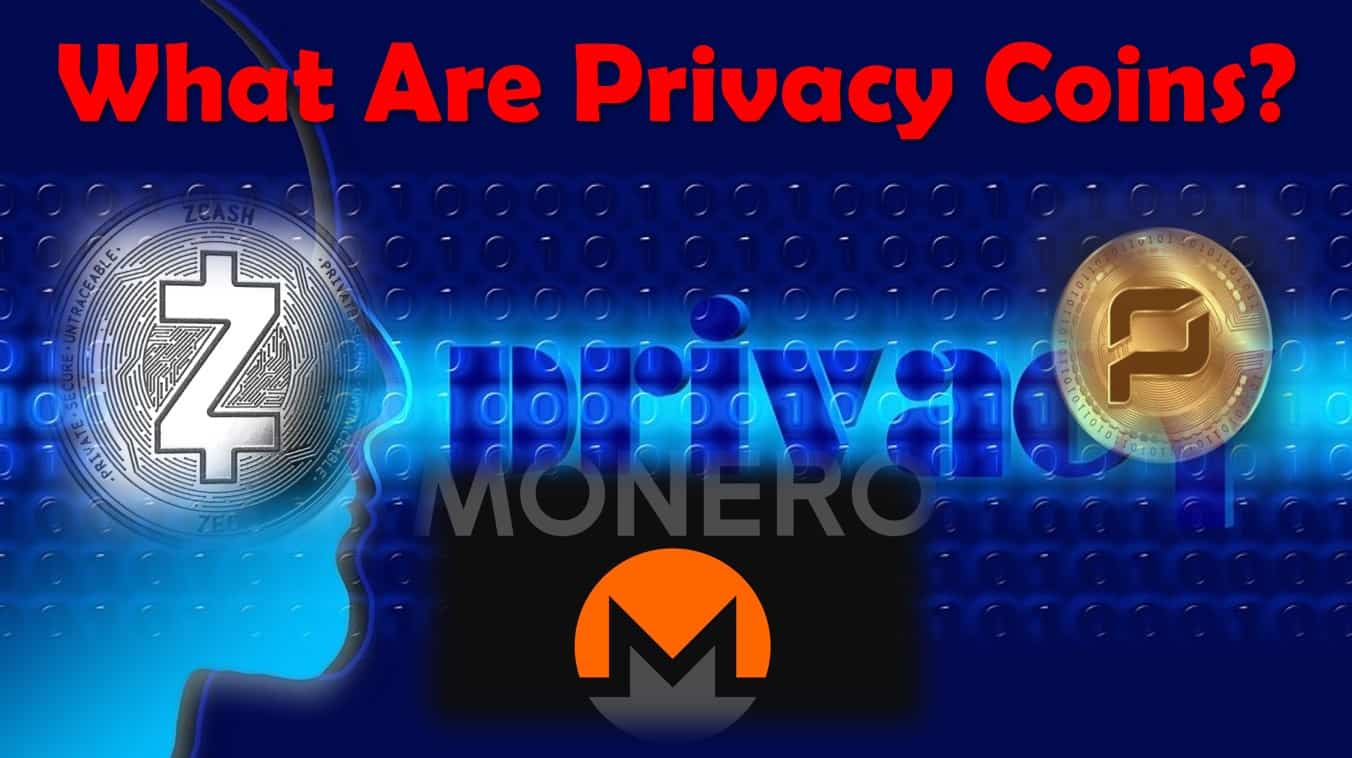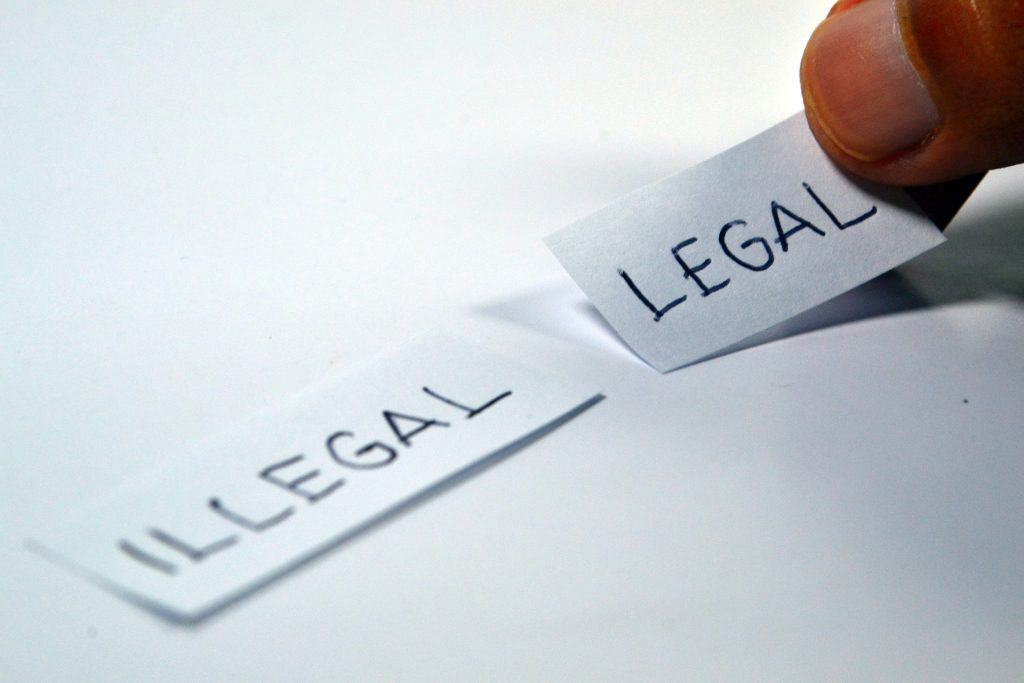
Cryptocurrency: What Are Privacy Coins?
Last updated on June 8th, 2023 at 03:10 pm
Arguably one of the most controversial categories of cryptos in the space are privacy coins. Privacy coins make it incredibly difficult, and in many cases impossible, to identify details of transactions.
Privacy coins are cryptocurrency that partially or completely obfuscate transactions. Details such as addresses and the amount of cryptocurrency are invisible on the blockchain. Privacy coins use different cryptographic methods to conceal transactional information.
Privacy coins are designed to add an additional layer of anonymity to the existing functionality of cryptocurrency. The confidentiality of a person’s financial transactions is important to autonomy and freedom.
However, government regulators would argue that these privacy coins are used primarily to conduct illegal activities. Furthermore, regulators insist that these coins should not exist, and if they do, they should be heavily regulated.
Privacy In Cryptocurrency
First, it should be noted that a cryptocurrency, despite having ‘crypto’ in its name, is not inherently private.
As a matter of fact, it is just the opposite.
Crypto, in this case, refers to the cryptography used to create and secure the blockchain.
When it comes to privacy, that is a completely different matter.
Bitcoin for example is referred to as pseudonymous.
The traditional definition of pseudonymous means giving a false name, like a writer using a pen name.
However, in crypto, think of it like, nobody knows your name, unless you give it to them of course.
And frankly, we give it to them every time we utilize a centralized cryptocurrency exchange. Centralized cryptocurrency exchanges require some form of KYC (Know Your Customer).
These centralized exchanges gather our personal identifying information (PII) and then gladly let us use their exchange.
We then buy, sell and trade different cryptocurrencies… and, if we are smart, eventually we remove them from the exchange and hold our assets in a cryptocurrency wallet.
Removing your cryptocurrency from an exchange is imperative if you want to safeguard your assets. If you’re still not convinced about doing this, perhaps this will help change your mind.
When we remove our cryptocurrency from the exchange, hopefully we’re sending it to a noncustodial wallet. This is a wallet controlled and secured by us.
Once our crypto assets are moved to our wallet, it creates a trail that can be followed on the blockchain.
This is one of the main components of the Bitcoin blockchain. It is open for anyone to see and verify a transaction. Using a blockchain explorer, any person can track transactions.
So, once we transfer our cryptocurrency to our wallet from the centralized exchange, that already knows who we are (because we had to tell them), we have created a trail to a wallet address that connects directly to us.
There are companies dedicated to tracking, tracing and identifying every wallet address on the blockchain. Currently, the most prominent in the crypto space is Chainalysis.
Make no mistake, government agencies have their own means of tracking blockchain transactions. However, they also utilize these services.
Moreover, these tracking and tracing services can ascertain much more than just the information we give a centralized exchange. Things like your IP address, geolocation and device type are just some of the additional information they can garner.
So as you can see, there are no private transactions on public blockchains.
Privacy coins aim to fix this and allow those who want privacy in their transactions to have it.
Top 10 Privacy Coins by Marketcap
*Excludes Stablecoins & Ethereum Based Tokens
How Privacy Coins Work
Privacy coins allow users to have total anonymity if desired. These coins can give users varying levels of privacy.
These levels of privacy can be anything from shielding wallet addresses to blocking transaction and wallet balances.
Some of the ways privacy coins help users maintain their confidentiality includes hiding sender and receiver wallet addresses and mixing multiple transactions together.
Like other cryptocurrencies, privacy coins are built on a decentralized blockchain and ultimately rely on Distributed Ledger Technology (DLT).
If you want to learn more about blockchain and DLT, I explain it in more detail in my ebook, Cryptocurrency 101.
Generally speaking, privacy coins are built from the ground up with privacy in mind. The best of them are private by default.
Some of the methods used to obfuscate transactions include, stealth addresses, coin mixers, Zk-SNARKs and Ring Signatures.
Stealth Addresses
Stealth addresses are single use addresses. A new address is created for every transaction, so user privacy can be maintained.
This prevents transactions from being linked to a single source via a public address, as can be done with Bitcoin.
CoinJoin or Coin Mixers
The first point to note about coin mixers is that they are not anonymous.
They provide a service that is difficult, but not impossible, to untangle.
In a nutshell, coin mixers take multiple transactions and combine them together into one larger transaction. Then, they divide the single transaction up into smaller transactions and send the proper amounts to each recipient.
The end result is, each recipient receives transactions from multiple senders instead of just one.
Zk-SNARKs
The term Zk-SNARKs is an acronym for Zero-knowledge Succinct Non-interactive Argument of Knowledge.
Zk-SNARKs is a cryptographic tool that allows for verification of transactions without the need to provide details of the transaction, such as a wallet address. This verification process helps to maintain user anonymity.
Ring Signatures
When you make a cryptocurrency transaction you are required to digitally sign it. This digital signature is done with your private key.
When you use your private key to sign a transaction, that can then be linked back to your wallet address.
Ring Signatures is a cryptographic tool that combines your digital signature with others using the same ring signature scheme. The more users there are in this scheme, the more difficult it is to connect a specific digital signature with a specific user.
Advantages & Disadvantages of Privacy Coins
| Advantage | Disadvantage |
|---|---|
| Anonymity | Unable to Run Smart Contracts* |
| Financial Security | Higher Fees |
| Fungibility | Government Regulations & Bans |
| Censorship Resistant | Illegal Usage |
| Inability to Complete Supply Audits |
*Some privacy by default coins have smart capability

Legality of Privacy Coins
While most countries across the globe are still in the process of developing cryptocurrency regulations in general, there are some who have focused initially on privacy coins.
As of this writing, some countries have placed various levels of restrictions on privacy coins. The most notable privacy coin bans are in Australia, South Korea and Japan.
Despite governmental concerns about privacy coins, there is investor interest in this crypto asset class.
In 2020, this interest prompted the completion of a report by the law firm of Perkins Coie looking at the ability of privacy coins to meet existing regulatory compliance.
In short, the report found that regulated entities, such as centralized cryptocurrency exchanges, are able to function with privacy coins within the currency regulatory guidelines.
The report focused on four main areas. These areas are the Importance of Financial Privacy, How Privacy Coins Work, the Existing Financial Regulations and How Privacy Coins Can Be Compliant.
Get more information as well as the complete report.
Financial Privacy Importance
Having the ability to conduct private transactions is becoming more and more important.
Everyday, governments are exerting greater levels of control over our lives. This includes monitoring exactly what we are doing with our money.
An unprecedented example of this is the U.S. government requiring banks to monitor and report banking transactions over $600.
In my opinion, this is a breach of our Fourth Amendment Protection From Illegal Search.
Furthermore, on a grander scale, we see money being weaponized everyday.
Sanctions are placed on countries all the time. These sanctions lock countries out of the SWIFT banking system. This effectively blocks them from transacting with other countries around the world.
But money is used as a weapon against individuals as well.
Take for example the Trucker Protest in Canada.
The government locked these truckers out of their bank accounts for protesting against the government COVID lockdowns and vaccine mandates.
But the government overreach did not end there. The government also locked citizens out of their bank accounts for donating money to the truckers.
So in short, the Canadian government weaponized money against its own citizens for protesting, or supporting a protest, against the government for overreaching its powers.
A better reason for having privacy in your financial transactions could not be given!
In the end, privacy coins provide protection against governments using your money against you.
Illegal Activities With Privacy Coins
Not to sound too pessimistic, but everything the government does is for the ‘public good.’
Governments say they enact regulations and restrictions to ‘protect us.’
There have been times when governments have attempted to help their citizens via regulations, however in more recent times it seems just the opposite.
The current trend is to legislate through regulation.
Hence we have seen enforcement action from agencies like the Securities and Exchange Commission (SEC). Some of their attempted regulatory action includes the court cases against Ripple and LBRY for example.
And this can be seen further with actions like the U.S. Treasury Department blacklisting the use of the crypto mixing service Tornado Cash.
In this situation, the Office of Foreign Assets Control (OFAC) added this mixer to the Specially Designated Nationals list. As of this writing, this blacklisting is being enforced by over 70% of Ethereum staking nodes.
Before I get too far off course…
One of main arguments from governments and central banks against cryptocurrency in general, and privacy coins in particular, is that these assets are used for illegal activities.

In a 2022 report from the blockchain analysis company I mentioned earlier, Chainalysis, the results show that this argument is not accurate.
This is especially true as it relates to the use of USD as the means of funding illegal activities including money laundering.
In short, the report finds that in 2021, approximately $8.6 Billion was laundered via cryptocurrency. Whereas, USD estimates for the same time frame were near $2 Trillion.
This means that the total percentage of illegal transactions in cryptocurrency is approximately 0.05%, while the total percentage of illegal transactions via USD is approximately 5%.
This is a staggering 100% more, even with all of the AML, KYC and other monetary regulations imposed on the banking system.
In the video that I’ve placed here, Coin Bureau does an excellent job of breaking down all the aspects of this report from Chainalysis.
Future of Privacy Coins
With all this information it is only logical to wonder about the future for privacy coins and their use in the world.
That question meets with varying sentiment both inside and outside of the cryptocurrency space.
One thing is certain, the adoption and use of privacy coins has been slower than other cryptocurrency assets. To help you understand why, it would help to understand what cryptocurrency is and how it works.
When looking at the entire financial landscape, including the coming issuance and usage of Central Bank Digital Currency (CBDC) the use case of privacy coins seems to shine.
If you’re unsure what CBDCs are, I have outlined them in this article.
The bottom line is that privacy coins are necessary for anyone who wishes to have privacy and security in their financial transactions.
Disclaimer
The information provided here is for INFORMATIONAL & EDUCATIONAL PURPOSES ONLY!
View our complete disclaimer on our Disclaimer Page






